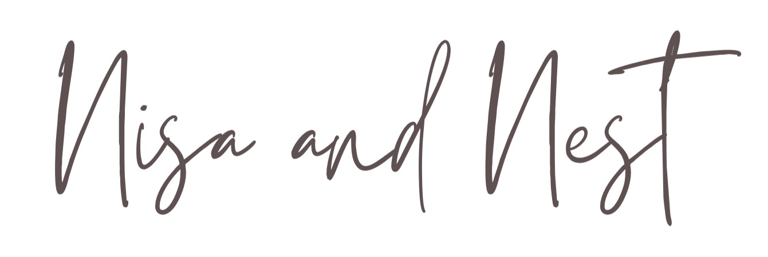The Art of Speech in Islam
Weighing Words with Hikmah and Guarding the Tongue
NISA REFLECTIONS
Nisa and Nest
8/9/20254 min read
The Art of Speech in Islam
“Not every truth must be spoken, and not every thought deserves a voice. In Islam, speech is not measured by speed or boldness, but by wisdom, benefit, and truth. The believer weighs words like gold, knowing that one sentence can heal a heart or break it. And sometimes, the most powerful answer is silence.”
In modern societies, especially in the West, the ability to “speak your mind”, “tell it like it is”, “be straightforward” without filter, is often seen as a sign of honesty and strength. People are encouraged to express their opinions freely and instantly, without much consideration for the weight, timing, or impact of their words. While this approach may come from a desire for transparency, it can easily lead to harshness, thoughtlessness, and the breaking of hearts. Often making a bad situation even worse. Islam, however, offers a higher standard, a way of speaking that preserves truth while protecting the dignity and feelings of others.
The Qur’an and Sunnah remind us that the tongue is one of the greatest blessings Allah has given us, but also one of the most dangerous.
The Prophet ﷺ said:
“Whoever believes in Allah and the Last Day should speak good or remain silent.” [Bukhārī and Muslim]
In these few words, the Messenger of Allah ﷺ laid down a golden rule that can safeguard our relationships, maintain unity, and protect us from sin. Speaking with hikmah (wisdom), requires not only saying what is true, but doing so in a way that is beneficial, timely, and compassionate. Truth, when spoken without mercy or thought, can wound more deeply than lies.
The righteous predecessors, the Salaf, understood this well. They regarded speech as a trust, an amānah, for which a person will be held accountable on the Day of Judgment. They would pause before speaking, asking themselves: “Will this word bring me closer to Allah, or will it weigh against me?” If there was doubt, then they preferred silence.
Imām al-Shāfi‘ī said:
“If speech is silver, then silence is gold.”
This was not a call for passivity, but a recognition that the tongue can raise a person in rank or lead them to ruin.
Among Muslim brothers and sisters especially, this principle takes on special importance. The Prophet ﷺ warned against harming one another with our words, saying that the Muslim is “the one from whose tongue and hand other Muslims are safe.” [Bukhārī and Muslim]
To speak harshly, mock, humiliate, or expose someone’s faults is to betray the bond of brotherhood and sisterhood in Islam. Even truth becomes sinful when it slips into backbiting (ghībah).
As Allah says in the Qur’an:
“And do not backbite one another. Would one of you like to eat the flesh of his dead brother? You would detest it.”
[Sūrah al-Hujurāt, 49:12]
Part of guarding the tongue is also guarding secrets. In Islam, a secret is an amānah entrusted to you, and revealing it without right is a form of betrayal.
The Prophet ﷺ said:
“When a man says something and then looks around, it is a trust.” [Abū Dāwūd, Tirmidhī]
Protecting what is told to you in confidence is a sign of loyalty and integrity. Many relationships, whether between family, friends, spouses, or colleagues — are built on trust, and exposing what was meant to be hidden can shatter bonds beyond repair. Only when there is a clear and Islamically valid reason to disclose information, such as preventing harm or injustice, should a secret be shared, and even then, with wisdom and moderation.
When it comes to parents specifically, the responsibility is even greater. Allah placed kindness to parents immediately after the command to worship Him:
“And We have enjoined upon man [care] for his parents. His mother carried him, [increasing her] in weakness upon weakness, and his weaning is in two years. Be grateful to Me and to your parents; to Me is the [final] destination.”
[Sūrah Luqmān, 31:14]
The Qur’an forbids even the smallest sign of irritation toward them, and commands us to speak to them with gentleness and respect. This applies even when there is disagreement, for nothing justifies harsh or ungrateful words toward those who raised us.
Speech is also a measure of integrity.
The Prophet ﷺ said:
“The signs of a hypocrite are three: when he speaks, he lies; when he promises, he breaks it; and when he is entrusted, he betrays.” [Bukhārī and Muslim]
Having “two faces” — praising someone in their presence but speaking against them in their absence, or telling different versions of the truth to different people — is among the ugliest of traits. A believer strives for honesty and consistency, ensuring that what is said in private aligns with what is shown in public, and that what is told to one person is the same as what is told to another.
To live by these teachings is to embody hikmah, sabr, and taqwā in our communication. It means pausing before the tongue moves, weighing each word as if it were gold, and remembering that Allah hears every utterance. All the while keeping in mind that sometimes (if not almost always), the most powerful and dignified response is silence. Not from weakness, but from strength. Because silence can protect the heart from arrogance, the tongue from sin, and relationships from separation.
In a day and age that rewards speed over reflection and bluntness over kindness, the prophetic way calls us back to a higher ethic: speech that is truthful yet merciful, honest yet humble, and always mindful of the One before Whom we will answer.
May Allah purify our tongues, beautify our speech, and make our words a source of light for ourselves and those around us.


